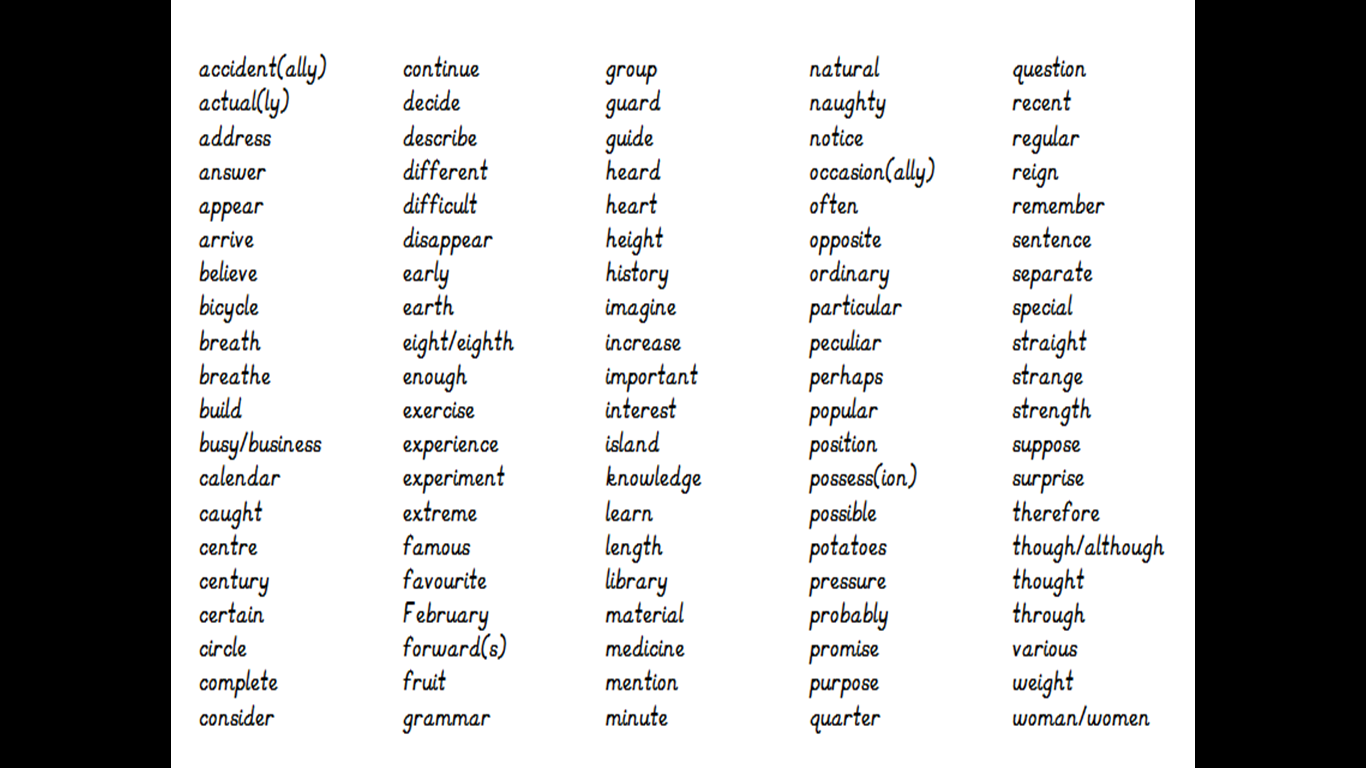SPELLING
Most people read words more accurately than they spell them. The younger pupils are, the truer this is.
By the end of Year 1, pupils should be able to read a large number of different words containing the GPCs that they have learnt, whether or not they have seen these words before. Spelling, however, is a very different matter. Once pupils have learnt more than one way of spelling particular sounds, choosing the right letter or letters depends on their either having made a conscious effort to learn the words or having absorbed them less consciously through their reading. Younger pupils have not had enough time to learn or absorb the accurate spelling of all the words that they may want to write.
This appendix provides examples of words embodying each pattern which is taught. Many of the words listed as ‘example words’ for Years 1 and 2, including almost all those listed as ‘exception words’, are used frequently in pupils’ writing, and therefore it is worth pupils learning the correct spelling. The ‘exception words’ contain GPCs which have not yet been taught as widely applicable, but this may be because they are applicable in very few age-appropriate words rather than because they are rare in English words in general.
Year 3 and 4 Spelling list
The word-lists for Years 3 and 4 and Years 5 and 6 are statutory. The lists are a mixture of words pupils frequently use in their writing and those which they often misspell. Some of the listed words may be thought of as quite challenging, but the 100 words in each list can easily be taught within the four years of key stage 2 alongside other words that teachers consider appropriate.
The rules and guidance are intended to support the teaching of spelling. Phonic knowledge should continue to underpin spelling after key stage 1; teachers should still draw pupils’ attention to GPCs that do and do not fit in with what has been taught so far.
Increasingly, however, pupils also need to understand the role of morphology and etymology. Although particular GPCs in root words simply have to be learnt, teachers can help pupils to understand relationships between meaning and spelling where these are relevant.
For example, understanding the relationship between medical and medicine may help pupils to spell the /s/ sound in medicine with the letter ‘c’. Pupils can also be helped to spell words with prefixes and suffixes correctly if they understand some general principles for adding them. Teachers should be familiar with what pupils have been taught about spelling in earlier years, such as which rules pupils have been taught for adding prefixes and suffixes. The International Phonetic Alphabet (IPA) is used to represent sounds (phonemes).
Year 5 and 6 Spelling list



